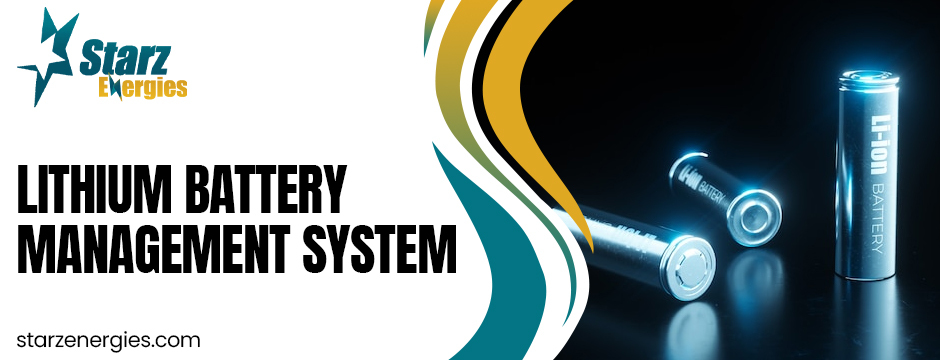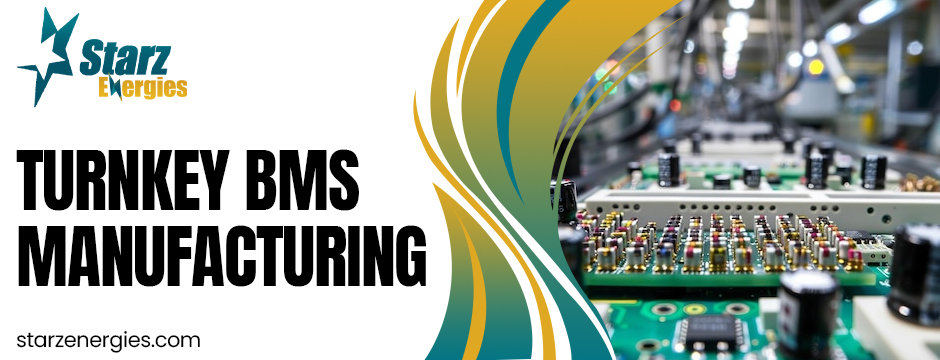
Blog
September 19, 2025
Modular Design Approaches in BMS Board Production for Utility-Scale Projects
Battery Management Systems, or BMS, are important for large energy storage. They make sure batteries work safely and efficiently. Utility-scale projects, like solar farms and industrial storage, need strong and flexible solutions. Modular design is becoming a key approach in BMS board production. It makes systems easier to maintain and expand. Modular systems split the BMS into smaller, manageable units. This improves safety, efficiency, and reliability. Modular design also helps energy systems handle more power without losing performance. It allows energy managers to plan upgrades easily. This blog explains how modular design improves BMS board production for utility-scale projects. It covers benefits, key features, and future trends. Modular BMS boards support high-performance battery systems. They help keep systems stable in large setups. Modular design is now a preferred method for modern energy storage systems.
Understanding Modular BMS Boards
A modular BMS board has separate units that work together. Each module checks a part of the battery system. These modules together form a safe and efficient lithium battery management system , keeping the batteries balanced and extending their lifespan. This is different from monolithic BMS boards, where all parts are combined in one unit. Modular boards are easy to expand. New modules can be added as energy needs grow. They are also easier to maintain. If one module stops working, it can be replaced without shutting down the whole system. Modular design improves safety. It keeps problems from spreading to other parts. It also allows engineers to upgrade features without changing the whole system. Modular boards work with different types of batteries. This makes them very flexible. By separating functions into modules, manufacturers can make boards more efficiently. Modular BMS boards are reliable, flexible, and cost-effective for large energy systems.

Importance of Modular Design in Utility-Scale Projects
Large energy projects need a lot of storage. Solar farms, wind farms, and industrial systems use high-capacity batteries. These projects need a BMS that can handle voltage, current, and complex monitoring. Modular design solves these problems well. It lets energy providers add capacity when needed. Maintenance is easier and downtime is reduced. Modular systems are also very flexible. They fit different layouts and project sizes. This is important for projects that grow over time. Modular BMS boards last longer and keep systems safe. They balance energy flow and protect battery health. Modular design helps save time and resources while keeping systems reliable. Effective planning in BMS board production ensures these modular systems perform safely and efficiently.
Key Features of Modular BMS Boards
Scalable Capacity
Modular BMS boards let energy providers expand storage easily. Modules can be added without changing the whole system. This saves money and adds flexibility. It also helps meet increasing energy demand. Scalable capacity ensures systems can grow in the future. This is very useful for large solar or industrial projects.
Advanced Monitoring and Diagnostics
Modular BMS boards offer real-time monitoring. Each module reports voltage, current, and temperature. Diagnostics find problems early. This helps prevent downtime and keeps systems safe. Advanced monitoring also shows performance trends. It helps optimize charging and discharging cycles. This keeps the system running efficiently.
Thermal Management
Heat management is very important for large battery systems. Modular BMS boards include thermal control features. These include temperature sensors and heat distribution methods. Proper thermal management increases battery life and maintains performance. It prevents overheating that could damage cells. It also keeps all modules within safe temperature limits.
Safety Protocols
Modular BMS boards have strong safety features. They protect against overvoltage, undervoltage, short circuits, and temperature problems. Faults in one module do not affect the whole system. Safety protocols also include automatic shutdowns in critical situations. This reduces damage to the system. It also protects people working near the batteries.
Custom Communication Interfaces
Modular boards have flexible communication options. They can connect with energy management systems easily. CAN, RS485, and IoT-enabled connections help control and monitor the system. Communication interfaces also allow remote diagnostics. Operators can manage multiple sites from one location. This saves time and improves efficiency.
Production Considerations in Modular BMS Boards
Making modular BMS boards needs careful planning. Manufacturers use design methods to make production easier. PCB layouts, test points, and connectors are optimized. Choosing the right parts is important. Reliable MOSFETs, microcontrollers, and sensors make boards last longer. Automation helps production. Pick-and-place machines, soldering, and inspections improve speed and accuracy. Modern turnkey BMS manufacturing approaches streamline the entire production process, ensuring consistent quality across all modules. Quality checks are vital. Functional tests, thermal checks, and safety checks make sure boards meet standards. Cybersecurity is included to protect systems from threats. Production must also follow safety and performance rules. Careful production reduces future maintenance. It also keeps quality consistent across boards.

Integration of Modular BMS Boards in Utility-Scale Energy Systems
Modular BMS boards work well with custom battery packs and hybrid energy systems. They manage energy flow across multiple batteries efficiently. Integration allows real-time monitoring and control. Modules can communicate with each other and with the central system. This improves stability and efficiency. Modular design makes upgrades easy. New modules can be added without shutting down the system. Maintenance is simpler because modules can be replaced individually. This design supports renewable energy storage, industrial systems, and EV charging infrastructure. Modular boards are a flexible and reliable base for large energy systems. They also help balance energy across modules. This reduces the risk of overloading and keeps performance consistent. Careful BMS board production ensures these modular systems deliver reliable performance and long-term efficiency.
Maintenance and Reliability Benefits
Maintenance is easier with modular BMS boards. Faulty modules can be replaced quickly. This lowers downtime and costs. Predictive maintenance tools monitor system health continuously. They detect issues before they cause failures. Modular design improves reliability. Isolating faults prevents them from affecting other modules. Optimized charging and discharging protects batteries. Modular boards extend battery life and keep performance stable. Maintenance schedules are simpler. Operators can handle issues one module at a time, saving time.
Cost and Efficiency Advantages
Modular BMS boards save money in the long term. Standard modules reduce production and replacement costs. Expanding capacity needs fewer design changes. Efficiency improves with smart monitoring. Energy losses are minimized and batteries work at peak performance. Modular systems prevent over-provisioning. This ensures resources are used well. Reduced downtime also lowers operational costs. Flexible modular systems are a smart choice for large projects. They combine savings with better system management.
Real-World Applications
Modular BMS boards are used in large energy projects. Solar and wind farms rely on them for safe, scalable storage. Industrial battery systems use them for reliability. EV charging stations benefit from modular boards for load management. These systems gain flexibility, safety, and scalability. Operators can adapt systems to changing needs. Performance stays consistent, even under heavy load. Modular boards also simplify system expansion. This makes it easier to integrate new energy solutions.
Future Trends in Modular BMS Board Production
The future of BMS board production focuses on smarter, more efficient systems. Monitoring tools will give early warnings for potential problems. New PCB materials will improve heat management. Automation will make production faster and more accurate. Integration with renewable energy microgrids will become standard. Modular design will continue to be key for flexibility and scalability. Energy systems will adapt more easily to growth. Modular approaches will make installation and maintenance simpler. These trends ensure BMS board production meets the needs of utility-scale projects.
Conclusion
Modular design in BMS board production brings many benefits for utility-scale projects. It ensures flexibility and scalability. It improves safety and system reliability. Maintenance is easier and energy efficiency is higher. These boards integrate smoothly with renewable energy storage, industrial battery systems, and EV charging infrastructure. Modular BMS boards help operators expand capacity without downtime. They provide real-time monitoring and balanced energy flow. With long-lasting performance and easy upgrades, modular systems support growing energy needs. For businesses seeking safe, efficient, and future-ready battery management solutions, Starz Energies offers advanced modular BMS boards. Explore our solutions today to power your projects with confidence and reliability.
About Starz Energies
Starz Energies is the first lithium-ion battery manufacturer in Tunisia, and in North Africa, to venture in energy storage solutions. Starz is applying its R&D expertise to provide more efficient, greener, and more affordable lithium-ion batteries.
Learn MoreShare This Post
Related Post
October 3, 2025 • 7 minutes read
Top Considerations When Choosing Battery Solutions for OEMs in Industrial Applications
September 26, 2025 • 9 minutes read
How Battery Thermal Management Systems Extend the Lifespan of Lithium-Ion Packs
September 12, 2025 • 8 minutes read
How Hybrid Battery Packs Improve Efficiency in Renewable Energy Systems
